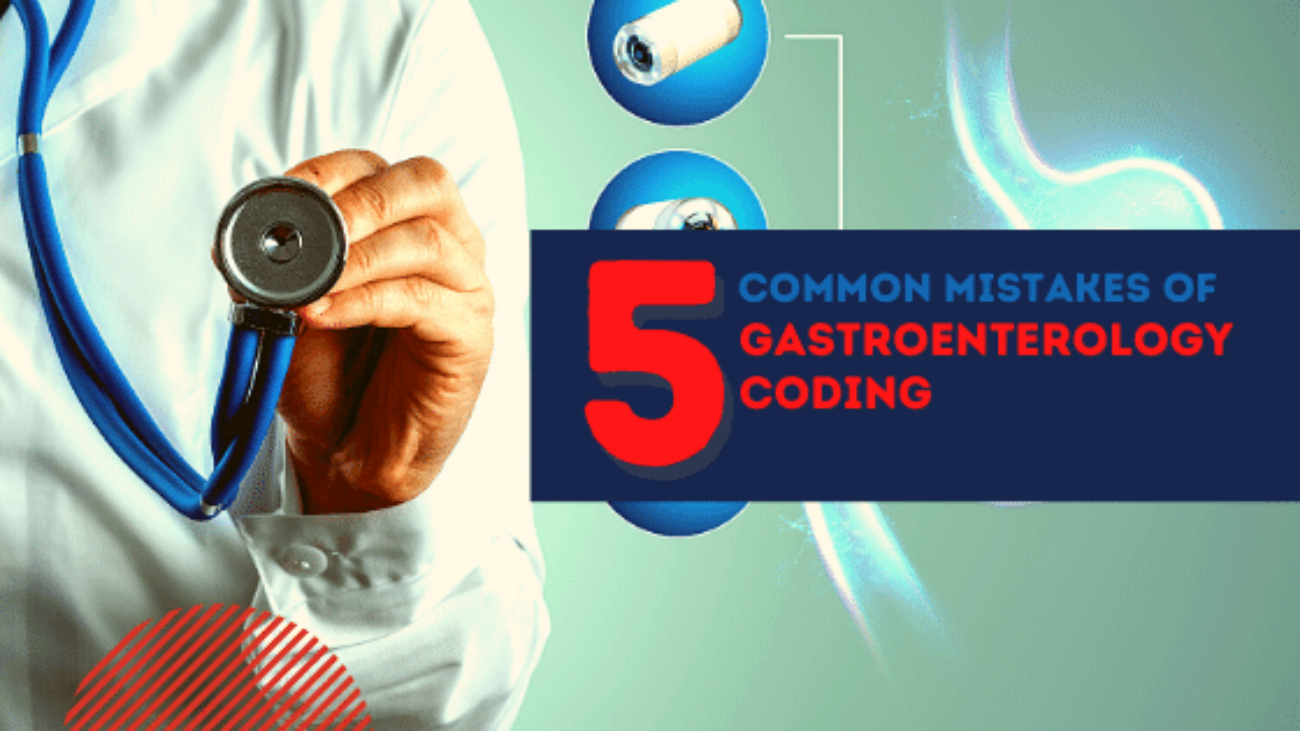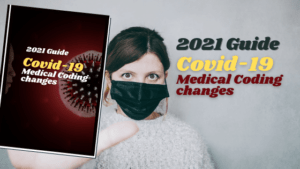Not all specialties are easy to code! Gastroenterology is one among those difficult specialties with the highest volume ambulatory surgery center specialties. Have you ever wondered what the consequences of incorrect coding are? Well, it isn’t naïve for healthcare professionals to understand Gastroenterology coding.
Even if you have a good knowledge in coding specialties, somewhere or the other healthcare professionals keep missing the information or documentations required. Billing and coding errors are common reasons for loss in revenue payments. In case of Gastroenterology coding and billing, it’s evident to explain the reasons for lower revenue reimbursement rates.
Five Common Gastroenterology coding mistakes:
- Inaccurate Modifiers
- Up coding
- Updates on CPT codes
- Eligibility verification
- Improper Documentation and Medical Necessity.
- Inaccurate Modifiers:
- One of the most frequent and common mistakes of Gastroenterology coding is inaccurate modifiers.
- Most of the errors are caused by endoscopic coding mistakes with confusion caused between modifiers 51 and modifiers 59.
- Generally, modifiers 51 are used for two procedures for two different coding categories that’s performed or being done on the same day.
- According to Gastroenterology coding, American College of Gastroenterology recommends the listing of codes along with its greatest value because of a rule that applies for multiple procedures.
- Whereas modifier 59 is usually utilized for different procedures or different sites which should be addressed on the particular day but not being followed.
- American Gastroenterology Association offers the surgery of hot biopsy polypectomy that’s being performed on one lesion while cold biopsy is performed on another lesion.
- The above procedures can be paid by insurance companies with no doubt when modifiers 59 are added during gastroenterology coding.
- Modifiers 51 and 59 are usually confused and result in claim rejections and denials.
Up coding:
- The trend of scrutiny of evaluation and code management has been increasing gradually.
- Evaluation and Management codes for gastroenterology coding are allowed for both new and established procedures.
- New patients are associated with higher reimbursement rates compares to established patients for the reason of greater time requirements as already mentioned by Centers of Medicare and Medicaid Services.
- Up coding is considered when the follow up of an established patient is coded at the level corresponding with the new patient for their office visit.
- The American Medical Association has been making changes in CPT coding every year. Those include more than 300 changes and updates in coding procedures. Some codes directly affect gastroenterology specialty.
- Some of the old codes will be replaced with the new codes, added with the modifiers which are very essential for gastroenterology coding, for which numbers of codes are added as well.
- Healthcare professionals and medical billing coders should be aware of the new coding updates in order to avoid the confusions with gastroenterology coding denials.
- CPT codes must be applied with accurate modifiers to explain the insurance companies, the reason for the procedures and types of procedures performed.
- Eligibility verification stays as the crucial part constantly for billing and coding gastroenterology procedures.
- Though the front office staff is not completely associated or involved in the eligibility verification process, play an important role in preventing claim denials.
- When the front office staff aren’t strong enough or not well experienced to understand the changes in billing and coding procedures, a lot of denials and rejections take place.
- It’s the duty of front desk to collect the complete information of patient and check if they are allowed to take the procedure under particular insurance policy.
- Building strong processes and focusing on patient’s details for insurance eligibility can be one of the best ways to prevent revenue loss and increase reimbursement rates simultaneously.
Improper Documentation and Medical Necessity:
- More accurate and clean documentation is required to make sure the business is running with profits.
- Clean documentation with necessary information is very essential for accurate coding and billing procedures which leads to clean claim submission.
- Insurance companies are continuously and increasingly mentioning the need for accurate documentation and proof of medical necessity.
- Insurance companies’ demands to verify patient medical records for which healthcare professionals aren’t actually prepared completely.
- Healthcare professionals who don’t use EHR , medical records will be in big trouble when insurance companies demand for medical necessity records.
- Even though healthcare professionals rely on EHR also will have few concerns regarding unnecessary data or information which aren’t always accurate.
Important tips for Gastroenterology coding:
- Always remember that the control of bleeding isn’t billed separately.
- Most of those endoscopic and gastroenterology procedures involve control of bleeding.
- Control of bleeding can’t be billed separately until and unless the patient is admitted with GI bleeding and for which the endoscopic is actually performed.
- Understand the difference between diagnostic procedures and endoscopic procedures as well as screening colonoscopies.
- Screening colonoscopies can be reported with ICD-10 codes.
- Medicare for screening procedures involves requirements for separate modifiers and for which polyps are found and removed while screening colonoscopies.
Hope you got the information on Gastroenterology coding. Please comment below your suggestions and add-ons for the above blog. Do refer our other articles from our blog for further information on other specialties. For more information on healthcare information, please subscribe to our blog.




